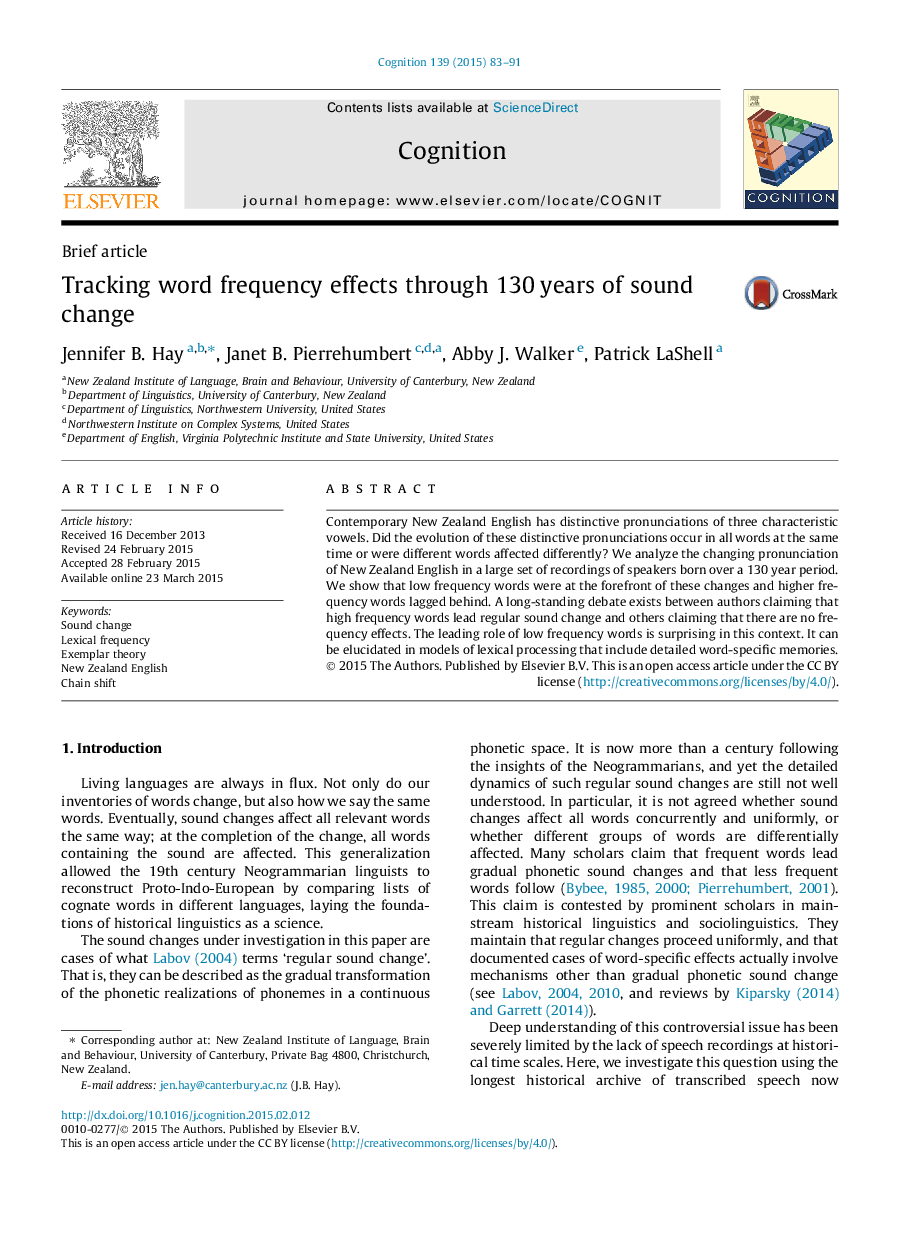| Article ID | Journal | Published Year | Pages | File Type |
|---|---|---|---|---|
| 7287125 | Cognition | 2015 | 9 Pages |
Abstract
Contemporary New Zealand English has distinctive pronunciations of three characteristic vowels. Did the evolution of these distinctive pronunciations occur in all words at the same time or were different words affected differently? We analyze the changing pronunciation of New Zealand English in a large set of recordings of speakers born over a 130Â year period. We show that low frequency words were at the forefront of these changes and higher frequency words lagged behind. A long-standing debate exists between authors claiming that high frequency words lead regular sound change and others claiming that there are no frequency effects. The leading role of low frequency words is surprising in this context. It can be elucidated in models of lexical processing that include detailed word-specific memories.
Related Topics
Life Sciences
Neuroscience
Cognitive Neuroscience
Authors
Jennifer B. Hay, Janet B. Pierrehumbert, Abby J. Walker, Patrick LaShell,
